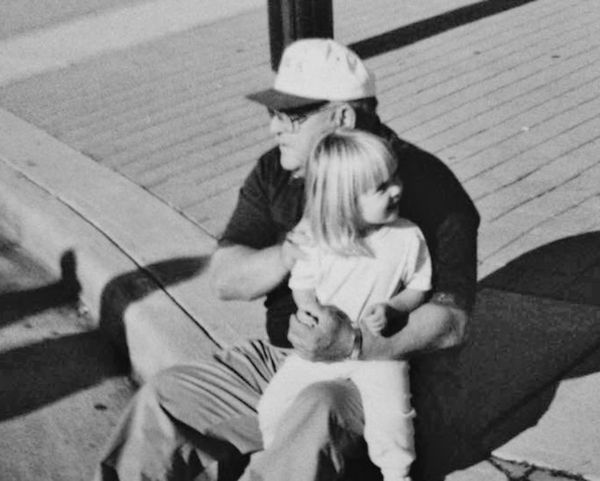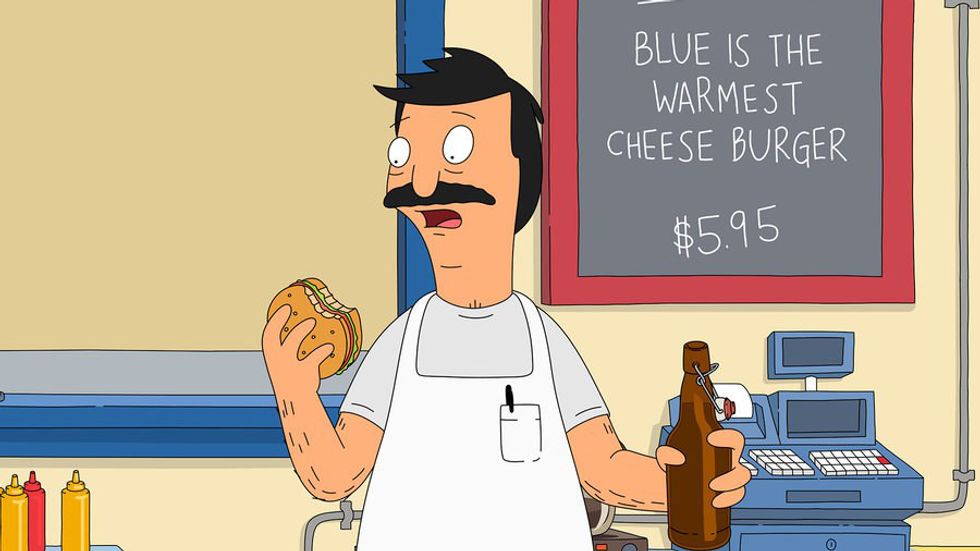Death and grieving are difficult and although there are a lot of negatives that come along with it, there are things you can learn from such a tragic experience.
1. No one will fill that void.
I have a mom-shaped hole in my heart that feels like a chronic condition. It's something that has no cure. At first, I was worried that the ache I felt in my heart would never go away. I had many women who are role models in my life reach out and I resented them, thinking they were trying to take the place of my mom. Throughout the past couple of months though, I have learned that although no one will fill that void, there are ways to make room for others in your life without the fear and guilt of replacing that void because it truly will never be filled.
2. Be gentle with yourself.
In the weeks and months after my mom's passing, I felt like I was in a fog. I was walking through life, not fully aware of what was going on around me. I attended my college classes but don't remember anything I learned during the semester. I was hard on myself for my brain was in a fog, I expected myself to be better. I couldn't even remember memories with my mom. But as time went on, the fog lifted and the memories came back.
Throughout that time, I learned that I needed to be gentle with myself. I am strong-willed and resilient, but nothing I've ever experienced before compared to the pain that I felt after the loss of my mom, so I learned that I needed to take more time than normal to care for myself. I started journaling and participating in yoga, which are both small things that helped the healing process.
3. Dying is really about living.
After my mom passed away, I spent the next few weeks and months just going through the motions of life. I had a therapist that sat me down and made me talk through the good qualities that my mom gave me. Picking out those good qualities that I got from my mom kind of brought me back to life. I realized that I was no longer living for just myself, but for my mom as well. So, every day I live the way my mom did by caring endlessly for others and smiling a lot, just like she did.
4. Not all peoples' experiences are the same, so use what works for you.
I can't recall the countless articles that I read about what losing a mom was like, or how I was supposed to deal with the grief. Except while reading the articles, nothing stood out as something that would help me. I tried so many different things to deal with the grief but finally realized that it's my own grief and healing, which looks different from everyone else.
Many people told me that I should take the semester off of school, but I know myself better than anyone and knew that getting back into a routine and getting my mind focused on something else was what I needed. So, I went back to school and found that grieving became a little less of a burden when I got back into my normal routine. Some people need that time off of school or work though, and that is OK. You need to do what is best for you.
5. Gratitude is transforming.
For many weeks after my mom's passing, I was so hurt and upset, I couldn't even remember any of the good times that I had with my mom. I was blind to the fact that I got to spend 20 amazing years with my mom. I was focused on all the things that my mom would be missing out on things such as my college graduation, and my wedding and birth of my first child. But, I've found that it serves me in more positive ways to focus on the fact I did have a mom who loved me dearly and got to spend 20 years of my life with her. She was someone who makes grieving so damn hard, and for that, I'm thankful.
6. Choose to live and thrive.
After the death of a close family member or friend, it's a lot easier to turn to destructive coping mechanisms than it is to practice self-care. When my mom died, I turned to alcohol to cope and stopped eating to feel like I had some control. But in the long run, that got me nowhere except in a worse place than I was already in. When I finally decided to start practicing self-care, it was hard. Really hard. It was a lot easier to turn to those destructive coping mechanisms. But, I know that my mom would want happiness and a full life for me, which is why I chose to practice self-care and not only live but thrive.
7. "Time heals all wounds."
I can't count the number of times that somebody has told me that "time heals all wounds". I believe that saying, but believe that time heals all wounds, on its own timeline. The first couple of weeks and months after losing my mom were really hard. I thought about her all day every day, and it was hard to function as a normal college student. But, as time has gone on, I have been able to focus more on the present rather than be stuck in my thoughts, constantly missing and thinking about my mom. I still have bad days, but I also have good days. The good days are the ones I hold onto and know that as time continues to go on, those good days will be more and more frequent.
8. "Normal" will never be what it used to be.
After my mom passed away, I wanted things to go back to normal. I wanted to be the stellar college student I was and the compassionate friend. But, I found that trying to get back to "my normal" was not possible, which frustrated me. "My normal" has changed because of the fact that my mom is no longer here. And in fact, I don't want things to go back to normal and know that they never will. Finding a new routine and a new way of life without my mom in it has been difficult, but something that is important and necessary to continue living your life.
9. Grief comes in waves.
I've found that one minute I will be smiling and laughing with my family, reminiscing on all the memories we got to experience with my mom, and then the next minute those same memories will bring tears. Some days are good and I feel like a normal 20-year-old hanging out with friends. And other days are bad, where I feel like I can't get out of bed because the weight of the world is too heavy. Sometimes those bad days scare me because I feel like I will never stop grieving but I've realized that healing is a process and there is no timeline on "grief."
10. Community is key.
Grief can make you feel lonely. You feel like no one else quite understands what you're experiencing, so you feel like you have no one to talk to. For a while after my mom's death, I isolated from friends and abstained from talking with them because I knew no matter how much I tried to explain it or talk to them about how I was feeling, they were never going to fully understand. And that's how grief and depression play hand-in-hand.
Depression comes into play and encourages you to isolate, claiming that no one will ever understand. But the fact of the matter is that people don't have to understand to be supportive and be there for you through the difficult times of grieving. My friends and family members have been the people that have kept me going, and made me realize just how important it is to be around others, especially during difficult times.
In conclusion, the death of a parent at such a young age is something that no one should have to experience and something that I wish I didn't have to deal with. But, through all the bad days and different parts of grief come good days and healing. I'm thankful for the healing that has come since my mom passed and all the things I'm continuing to learn from her even while she is no longer here with me.
I love you, Mom.



































